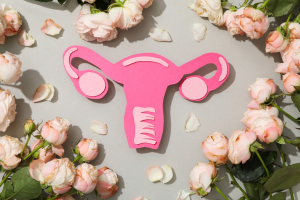Many women associate the onset of menstruation with the belief that ovulation has already occurred. They believe that without menstruation, the body cannot release an egg. In reality, things are somewhat different. In fact, ovulation is possible even without menstruation.
Ovulation is the process by which the ovary releases an egg ready for fertilization. It can occur even with an irregular menstrual cycle or even if menstruation is absent due to hormonal factors. After a period of amenorrhea, ovulation may occur unnoticed, and menstruation will return later only if pregnancy does not occur.
When can this happen? There are several situations in which a woman can ovulate even without menstruating: breastfeeding; irregular cycles; perimenopause ; adolescence; and stopping hormonal contraceptives.
Postpartum period and breastfeeding: During lactational amenorrhea, ovulation may resume unpredictably, even without the return of menstruation. Irregular cycles: Women with polycystic ovary syndrome (PCOS) or hormonal imbalances may also experience sporadic ovulation. Perimenopause : the period preceding menopause, characterized by irregular cycles. Occasional ovulations may occur during this period. Adolescence: During the first few years after menarche , cycles are often irregular, and ovulation may occur even in the absence of regular menstruation. Discontinuation of hormonal contraceptives: Ovarian activity may resume immediately, and ovulation may occur before the first menstrual period.
What are the signs of ovulation even without menstruation? Recognizing ovulation without menstruation isn't always easy, but the body can provide some clues. A change in the composition of cervical mucus, which becomes thinner and clearer, is one of the most obvious signs. Some women also experience mild discomfort or pelvic pain mid-cycle, while others note an increase in basal body temperature or breast tenderness. These signs aren't infallible, but they may indicate that the body has regained fertility even without menstruation.
What are the risks? The main risk of ovulating without a period is unwanted pregnancy . Many women believe they are infertile if their period does not return, but this is not true; the return of ovulation can take them by surprise. A typical example is the postpartum period. Some mothers rely on breastfeeding as their only method of contraception and become pregnant before their first menstrual period. The same can happen to women with irregular cycles or amenorrhea. From a health perspective, there are no immediate risks, but lack of awareness can lead to an unplanned pregnancy or, conversely, to underestimating your fertility when trying to conceive.
Is it possible to get pregnant without menstruating? Yes, it is possible. Based on the above, the absence of menstruation does not always mean infertility. Even without repeated periods, conception is still possible . This is why unwanted pregnancies often occur after childbirth or in women with irregular cycles.
The opposite is also possible : menstruation without ovulation. Just as ovulation can occur without menstruation, the opposite is also possible: bleeding resembling menstruation but not preceding ovulation. This phenomenon, called an anovulatory cycle, is quite common during certain periods of life, particularly: the first few years after menarche , when the hormonal system is still stabilizing; during perimenopause , when ovarian reserve decreases; and in cases of severe stress or sudden weight loss.
When should you see a doctor? If your period continues for several months without pregnancy, it's recommended to consult a gynecologist at the Bogolyuby Medical Center . Prolonged amenorrhea may be associated with hormonal imbalances, such as thyroid disease or hyperprolactinemia , or conditions such as polycystic ovary syndrome.



















